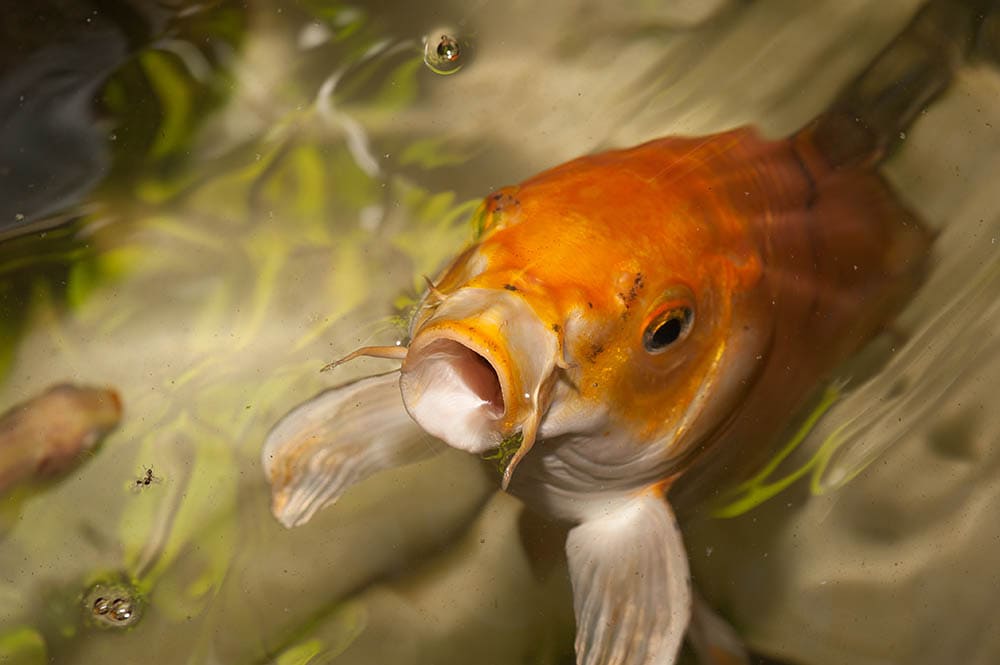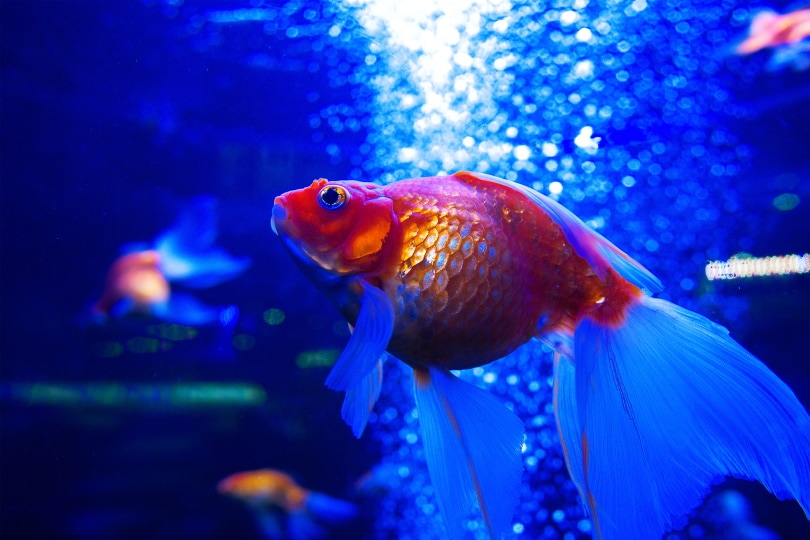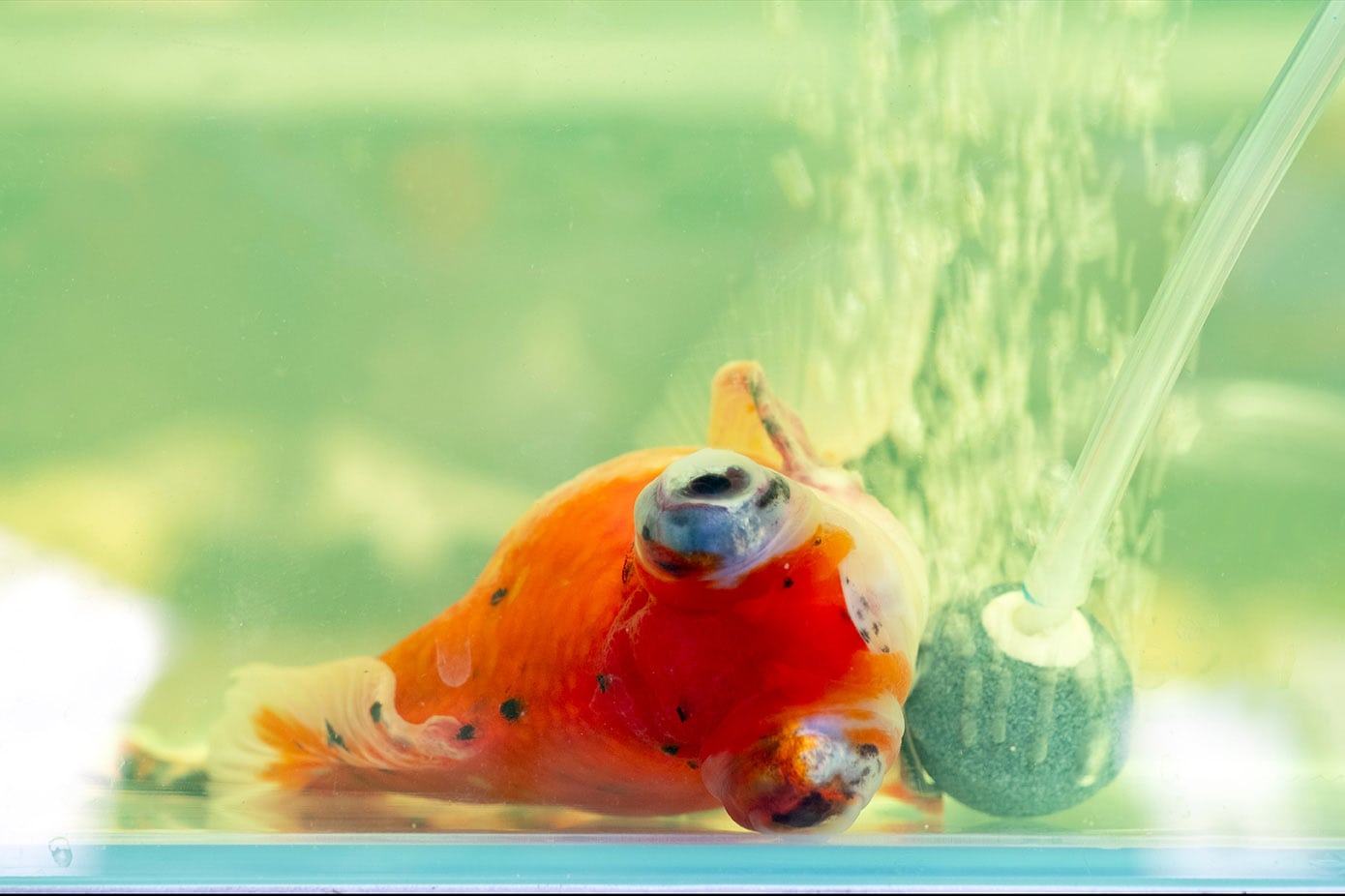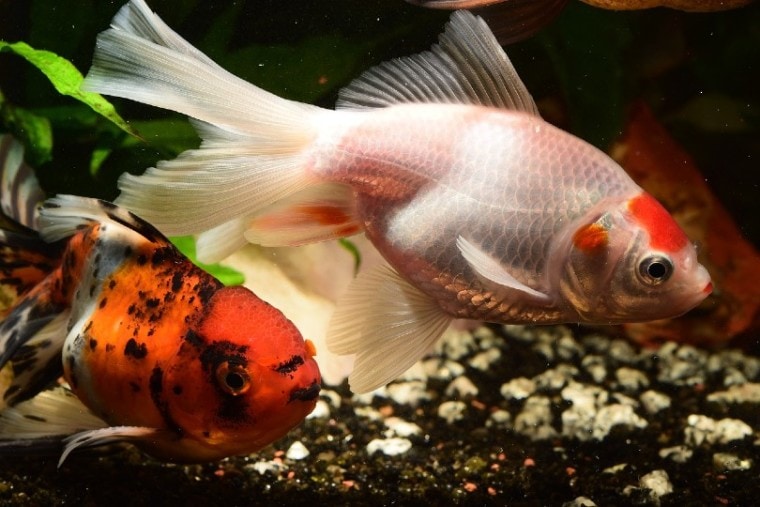
Goldfish are friendly and playful creatures that generally do not exhibit aggressive behaviors. They are peaceful and social temperate water fish that enjoy the company of their species. It can be alarming to realize you may have purchased an aggressive goldfish, or even worse, your friendly goldfish suddenly develops an aggressive nature towards its tank mates.
There are several reasons your goldfish may be acting aggressively. Goldfish aggression is not common, but it is not unheard of. Any fish can get agitated—even the most peaceful of fish get moody sometimes. Aggression is unwanted behavior that can mess up your carefully balanced goldfish community tank. The aggressive goldfish will not only stress itself out, but also cause distress in the other goldfish within the tank.
It is important to get to the root of the problem and find the best solution to stop it. This guide will help you find methods to control the aggression situation while identifying the top causes.
The Nature of Goldfish
Goldfish are not aggressive fish. They are documented to be one of the friendliest species of fish out there! They rarely show signs of being territorial.
In the wild, goldfish will form large schools and feel safest when kept with other types of goldfish. A lonesome goldfish will not be as happy without being part of a small goldfish group. Some aquarists will house the aggressive goldfish alone without addressing the problem and finding a solution. This is one of the least effective methods and should be used as a last resort.
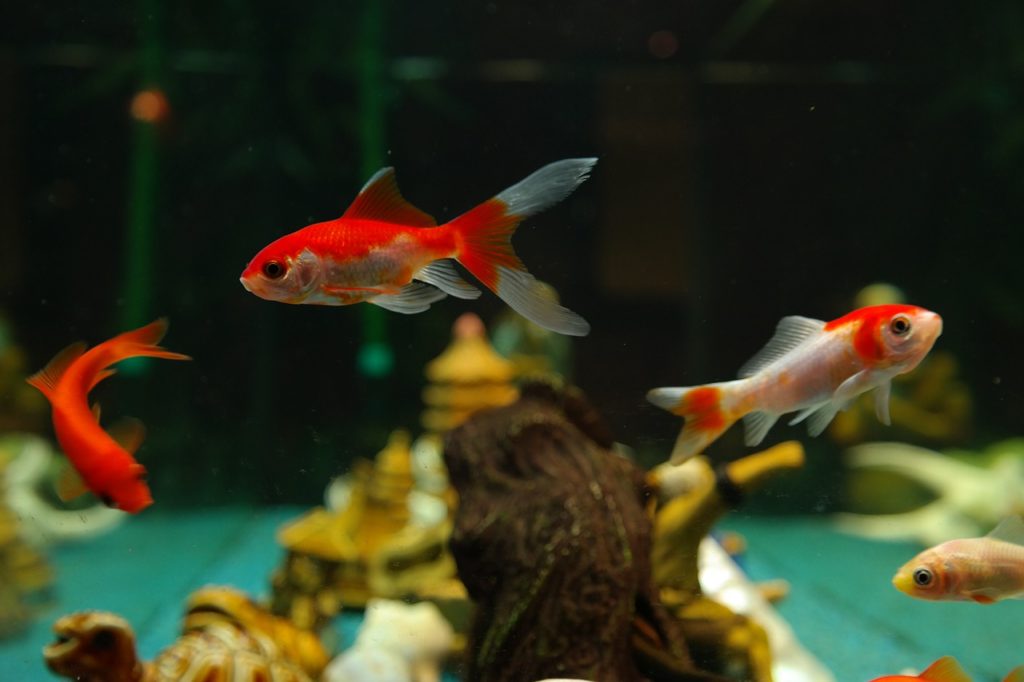
The 11 Reasons Your Goldfish Is Aggressive (With Solutions)
1. Mating Behavior
This is a natural occurrence amongst goldfish that are housed with opposite genders. Mating or spawning behavior consists of a male goldfish chasing the bottom of the female goldfish. In some cases, the female may chase the male. Mating behavior is common when the goldfish are ready to breed, and it can occur periodically. This not usually a cause of concern and should not happen very often.
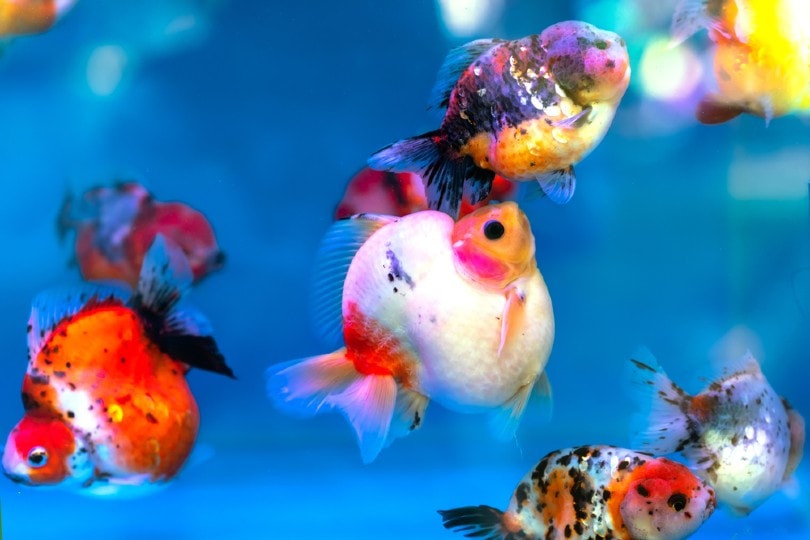
2. Small Living Space
Goldfish can become stressed if they are kept in a bowl or vase. These are too small as appropriate living conditions and will not allow your goldfish to thrive. This can cause them to become aggressive and generally unfriendly towards their tank mates. They are feeling cramped and restless because of the small aquaria. Some tanks can also be too small or even too tall. Goldfish appreciate a tank that is rectangular in size and has a good amount of horizontal swimming room.
Housing a goldfish isn't as simple as buying a bowl. If you're a new or experienced goldfish keeper who wants to get the setup right for your goldfish family, check out the best-selling book, The Truth About Goldfish, on Amazon. It covers all you need to know about the ideal tank setup, tank size, substrate, ornaments, plants, and so much more!
3. Limited Food
If you do not feed your goldfish enough food to fill the mouth of every goldfish in the tank, they will begin to fight and chase each other for food. This is a common aggression occurrence for goldfish during feeding time. This is brought on when other goldfish eat all the food before the others have had a chance to get enough to satiate them.
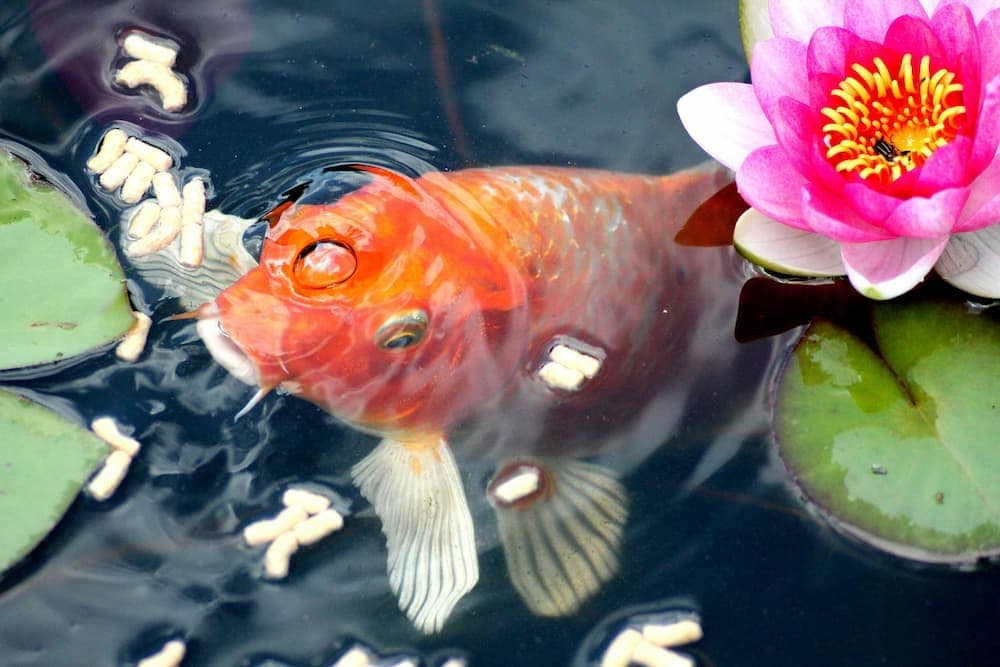
4. Crowded Conditions
If the stocking number of goldfish in the tank is too high for the size of the tank, your goldfish will feel crowded and cramped. This will cause them to bicker amongst one another for swim space. This is uncomfortable for the goldfish and only leads to unnecessary stress. You may notice the goldfish chasing each other with erratic movements. In some cases, the goldfish will chase the other one to the point where it will jump out of the tank to escape its living conditions.
5. Disputes
It is not uncommon for goldfish to get into a minor dispute with a tank mate. This can be over a few things such as mates, food, treats, or a resting spot. This is not usually a cause for concern and the goldfish should right themselves in a matter of minutes.
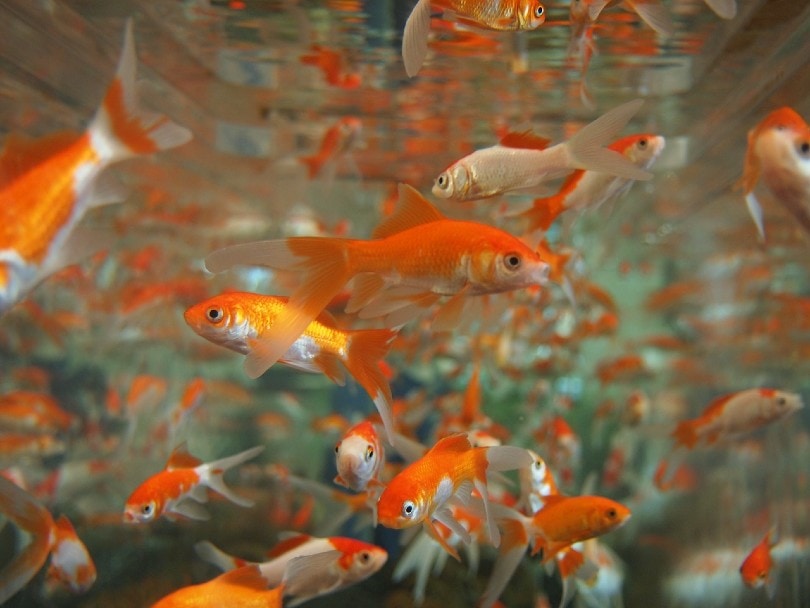
6. Unsuitable Tank Mates
Goldfish should only be housed with their species. If your goldfish is housed with aggressive fish like Oscars, Cichlids, or Jack Dempseys there will be major aggression problems in the tank. These fish will stress out the goldfish as goldfish do not suit the living conditions of other fish. Goldfish will also torment other types of fish like guppies, bettas, and livebearers. This makes goldfish poor tank mates for other fish.
7. Startled
If a goldfish is startled by you or another external source, they may take in the pent-up adrenaline rush and chase another goldfish. This is common with new goldfish who are not yet familiar with their surroundings. This can also occur from small children tapping on the glass or making fast movements around the tank. Aside from the fish showing temporary aggression, it will also become stressed as a result.
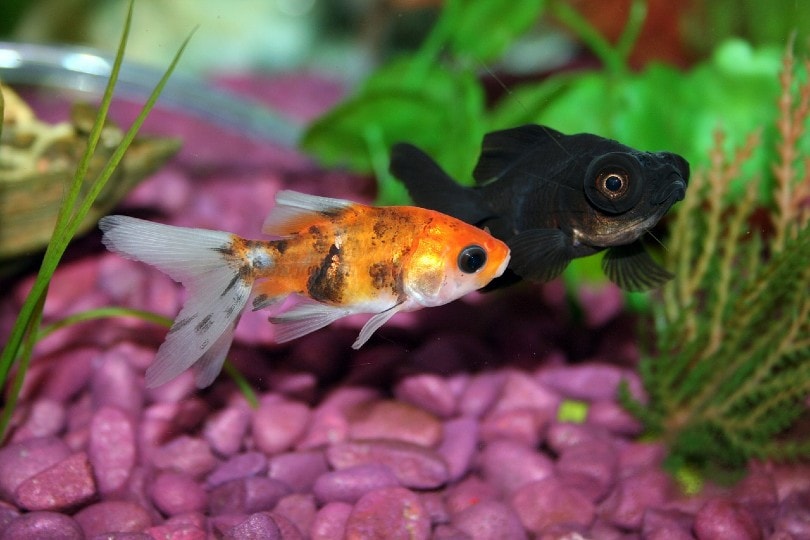
8. Stress
Stress causes a goldfish to become moody. They will show anger towards their tank mates by chasing or fin nipping them. Goldfish can become stressed for a variety of reasons. The most common cause of stress in goldfish is inappropriate housing and poor water conditions. Aside from stress causing aggression, it can also lower the goldfish’s immune system and cause them to fall ill.
9. Territorial
Goldfish are not naturally territorial, and this behavior should be considered odd, although it is not necessarily a cause for concern. The most common cause of a goldfish being territorial is if they are jealous of other fish in the tank or if the tank is too small. Territorial behavior is distinguished by chasing and nipping other goldfish away from a certain area in the tank.
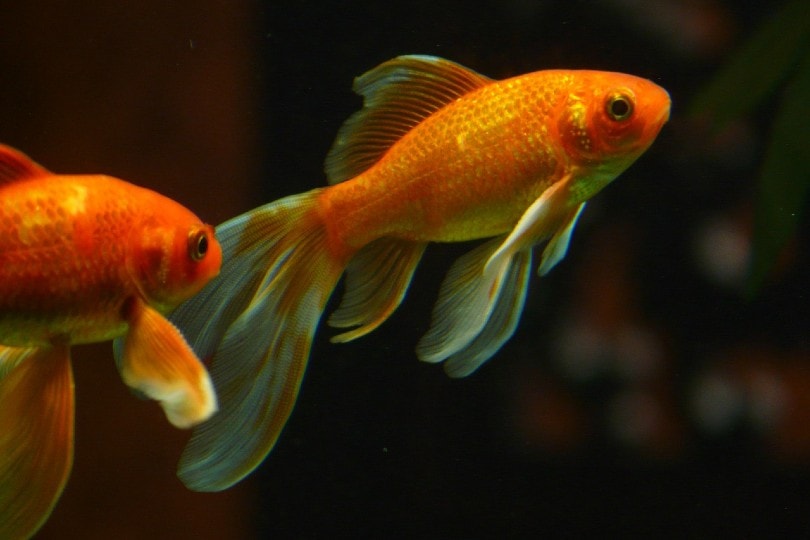
10. Sickness
A sick goldfish feels vulnerable and will feel like it’s being preyed on if other fish try to disrupt them. This can cause them to chase the fish away from them by a jabbing motion of their body. This is their attempt at warding off potential predators, even if it is a long-term tank mate. Some goldfish will also attempt to nudge at the sick goldfish, and some have even rested alongside the other goldfish for comfort. This should not be taken as aggression and is just a rare, comforting side of the beloved goldfish species.
11. Personality
Some goldfish just naturally have a slightly aggressive nature. This type of goldfish may not find interest in certain goldfish tank mates and bully them. This does not have a solution and should be dealt with accordingly. An aggressive fish will stress out other goldfish and cause them to hide.
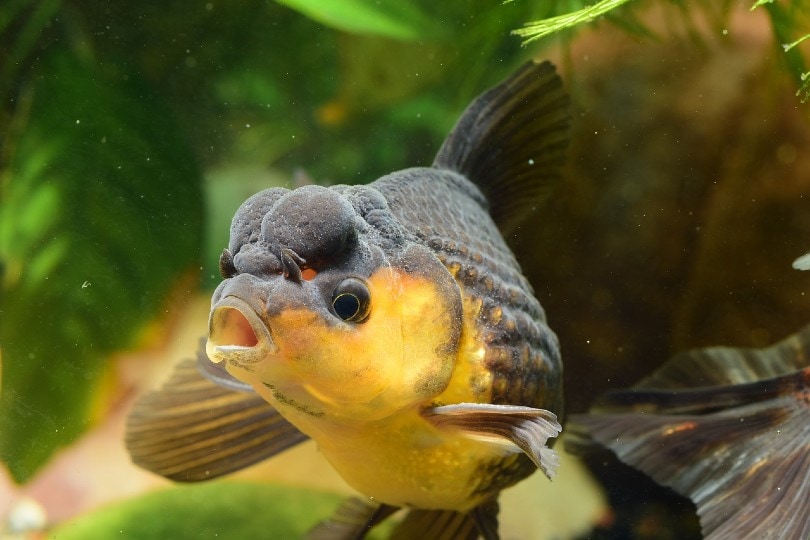
Final Thoughts
Aggression in goldfish should be dealt with as soon as you notice any signs of it within the tank. Ensure that the goldfish has a large tank and an appropriate stocking rate. Aggression can typically be easily identified and diagnosed in an aquarium. Any form of aggression in goldfish should be considered abnormal. Every factor of aggression should be considered before you decide that it is just the goldfish’s personality, as this is usually not the case.
We hope this article has helped you identify and find solutions to your goldfish’s aggressive behavior.
Featured Image Credit: Juan Carlos Palau Díaz, Pixabay




